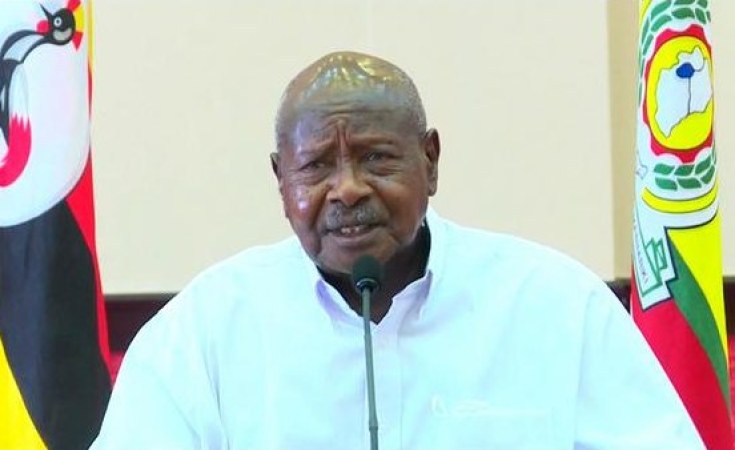President Museveni has accused the World Bank of prioritising loans for 'seminars' instead of helping poor African countries address structural bottlenecks hindering their development.
The Ugandan leader told the World Bank's International Development Association (IDA)- Africa Heads of State summit held in Nairobi, Kenya that the international lender is always quick to provide loans for "seminars where people just sit and eat chapati" but is not interested in supporting irrigation and infrastructural development.
"Africa does not need that sustainable underdevelopment; Africa needs socio-economic transformation. You cannot have quantitative growth and you think you are doing anything," he said.
The president said there's no growth in Africa because the growth factors like the private sector-led growth are not funded.
"In order for the private sector to grow, it needs low cost of production in transport, electricity and low-cost funding for manufacturing," the President observed.
"If you are serious, talk about low cost funding for manufacturing and funding for irrigation to stabilise agriculture. A loan for seminars is very quick to get but for agriculture is hard to get," he added.
Critics of the World Bank and IMF have argued that policies implemented by African Countries, intended to control inflation and generate foreign exchange to help pay off the IMF debts, often result in increased unemployment, poverty and economic polarization thereby impeding sustainable development.
The reliance of many African countries on imports of manufactured goods has left them importing more while exporting less. Their balance of payments deficit has worsened and their foreign debt burdens have become unsustainable.
President Museveni informed the participants that one time he tried to look for foreign funding to help the 39 percent of Ugandans to join the money economy, but he failed because the available funding had conditions.
He said he ended up using the country's limited financial resources to kick off the Parish Development Model (PDM) initiative.
"Uganda is a very rich country but one of the problems we were having is that most people were outside the money economy, they were only producing for eating so I was looking for money to give coffee seedlings to this group so that they can start producing for the economy but I could not get money from anybody because the loans are for capacity building but we funded it ourselves. Each year we spend 300 million USD of our own to make these villagers join the money economy by producing for the stomach and the pocket."
The President also pointed out the challenge of neo-colonialist civil servants who talk about money for import support that undermines the economic development of any African country.
"But I don't want to import, I want to export, why don't you talk to me about import substitution and export promotion?" he inquired.
President Museveni emphasised the importance of socio-economic transformation and the need for loans that propel prosperity.
He further attributed the current crisis in Africa to persistent philosophical, ideological, strategic economic mistakes that have been in place since the 1960s and advocated for a paradigm shift towards socio-economic transformation and the need to transcend mere quantitative growth and focus on achieving qualitative change.
"When you see the crisis in many African countries, the collapse of the State, we predicted this in the 1960s. But I was very happy to hear the President of the World Bank talking about prosperity instead of profiteering. These were his own words. This has been the problem; aid has been for profiteering. The World Bank people and other groups have been talking about sustainable development, even in your document I have seen those words there. I'm now going to be 80 years old. I have never seen a sustainable pregnancy; that a woman is pregnant this year, the pregnancy continues next year, 3 years and 4 years, it never happens," he said.
"In life, pregnancy develops sustainably in the womb of the woman quantitatively. The baby is growing bigger and bigger but at some stage, quantitative growth must be transformed into qualitative change. The pregnancy must become a baby. If the pregnancy remains a pregnancy, the fetus will die. Therefore, I would even ask you to change those words in your documents."
President Museveni also reiterated his message on the need for Africa to stop exporting its raw materials but instead add value at source in order to steer development.
"This Hemorrhage of Africa must stop. The crisis you see in Africa is because of stagnation of the last sixty years, since independence. The population is increasing and yet the economies are not," he remarked.
The International Development Association (IDA) is a development finance institution which offers concessional loans and grants to low-income countries. The IDA is a member of the World Bank Group and is headquartered in Washington, D.C. in the United States.


